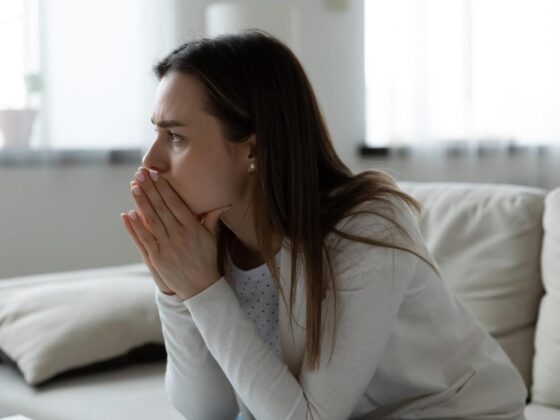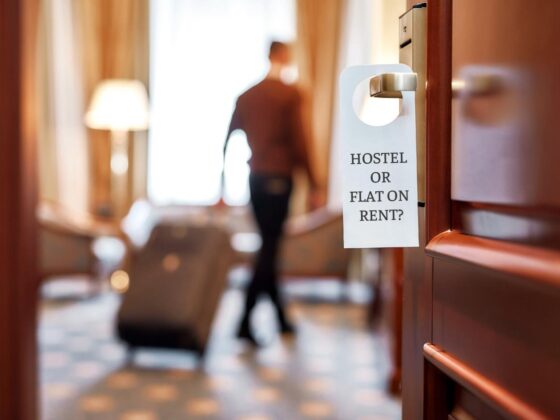Table of Contents

Hostel Rules are the foundation of a safe, affordable, and community-driven travel experience. Living in a hostel offers a unique blend of adventure and community, but whether you’re a first-time backpacker or a digital nomad, understanding hostel rules and the non-negotiable dorm room restrictions is essential. Breaking these guidelines won’t just earn you a stern warning—it can lead to fines or immediate expulsion, cutting your trip short.
To ensure a smooth, secure, and respectful stay in any shared accommodation, you must know what is strictly off-limits. This complete guide breaks down the eight most common and non-negotiable hostel rules found globally.
Non-Negotiable Hostel Rules You Need to Know
1. Noise Disturbances: Respecting Quiet Hours
One of the cardinal rules in any shared accommodation is maintaining a quiet and respectful atmosphere, especially in dormitories.
The Rule: Loud music, late-night phone calls, or rowdy behaviour that disrupts fellow residents is prohibited. Most hostels enforce Quiet Hours, typically between 10 PM and 8 AM.
During quiet hours, use headphones for media, pack your luggage outside the dorm, and be mindful of slamming doors or rattling lockers. Remember that your neighbour might be studying, working, or battling jet lag.
2. Illegal Substances & Excessive Drinking
Hostels maintain strict policies to comply with legal regulations and ensure the safety of all residents.
The Rule: The use of illegal substances on the premises is grounds for immediate expulsion and may involve legal action. While some hostels permit moderate alcohol consumption in designated hostel common areas, excessive drinking that leads to disruptive or unsafe behaviour is strictly forbidden.
If you plan on having a few drinks, ensure you understand the hostel’s specific alcohol policy and keep consumption contained to non-dormitory areas.

3. Unauthorised Guests & Security
The safety and security of all paying residents are a top priority for any hostel.
The Rule: Hostels have firm regulations against the entry of non-residents, especially into sleeping areas. Unauthorised guests compromise the security and privacy of the living space and the possessions of others.
If you meet a friend locally, invite them to meet you in the hostel lobby, a communal lounge area, or a nearby café. Non-residents are rarely allowed past the reception area or into the dorm rooms.
Check out: Which College Has Best Hostel Room?
4. Vandalism and Theft of Property
Respecting both the hostel’s property and the possessions of fellow residents is crucial to maintaining a healthy community environment.
The Rule: Vandalism, theft, or any intentional damage to facilities—whether it’s the physical building, shared furniture, or kitchen equipment—is strictly prohibited and will result in financial liability and immediate removal.
Always contribute to maintaining a secure environment. Use the provided lockers for all valuables and refrain from taking or misplacing any shared property (e.g., communal books, kitchen utensils).
5. Prohibited Cooking Appliances & Kitchen Policies
Most hostels offer communal kitchens, but certain practices are restricted due to serious safety concerns, namely, fire hazards.
The Rule: Cooking appliances such as hot plates, personal toasters, kettles, or personal electric fryers are strictly not allowed inside dorm rooms. Use only the facilities provided in the communal kitchen.
Kitchen Etiquette is paramount. Always clean up immediately after preparing and eating your meal, and adhere to the policy of labelling and dating any food you store in the communal fridge to avoid it being thrown out.
Check out: Best Biryani in Bangalore
6. Indoor Smoking and Vaping
For health, safety, and comfort, most accommodation facilities strictly enforce non-smoking policies.
The Rule: Smoking cigarettes, cigars, or using e-cigarettes/vaping devices indoors is strictly prohibited in all shared spaces and dormitories.
Smoking in a room is a severe offence as it often triggers fire alarms, potentially leading to immediate fines and evacuation of the building. Always use the hostel’s designated outdoor smoking area, if one is provided.
7. Bringing Pets or Animals
While pets are wonderful companions, hostels must prioritise hygiene, allergies, and the comfort of the diverse group of people sharing the space.
The Rule: General pets (dogs, cats, birds, etc.) are not allowed in rooms or common areas.
This policy helps maintain a clean and allergy-free environment for everyone. The only common exception is for legally recognised Service Animals, provided the owner can show necessary documentation and coordinates with management beforehand.
8. Tampering with Fire Safety Equipment
Fire safety is a universal top priority, and any action that compromises it is treated as a serious offence.
The Rule: Tampering with fire alarms, smoke detectors, fire extinguishers, or safety exit signs is strictly prohibited and can put lives at risk.
This rule also applies to practices that can unnecessarily trigger equipment. Do not light candles, incense, or any open flames in your room. If you notice a fault with any safety equipment, report it immediately to the staff rather than attempting to fix it yourself.
FAQ’s
There is no single “Hostel Law.” Hostels follow local lodging and fire safety laws, plus their own mandatory Hostel House Rules and regulations (a contract you agree to when booking).
For student hostels (dorms), rules are strict: mandatory curfews, no unauthorised guests, strict quiet/study hours, and zero tolerance for alcohol or smoking on the premises. They operate under the institution’s disciplinary code.
Usually, no, not in shared dorms. Most require guests to be 18 or older due to liability and local laws. They might be allowed in a private room if accompanied by an adult, or if they provide specific written parental permission. Always confirm with the hostel first.
Yes. Hostels require a valid photo ID (like a passport or driver’s license) for security, age verification, and to comply with local laws that require registering guests.
DO’s
Be Quiet during quiet hours (e.g., after 10 PM).
Clean Up immediately after using communal areas (kitchen/bathroom).
Use a Lock for your valuables/locker.
Be Respectful of others’ assigned space.
DON’Ts
Don’t use phones or alarms loudly in the room.
Don’t bring unauthorised guests into the dorm.
Don’t smoke or use candles/hot plates indoors.
Don’t leave your valuables unlocked.










